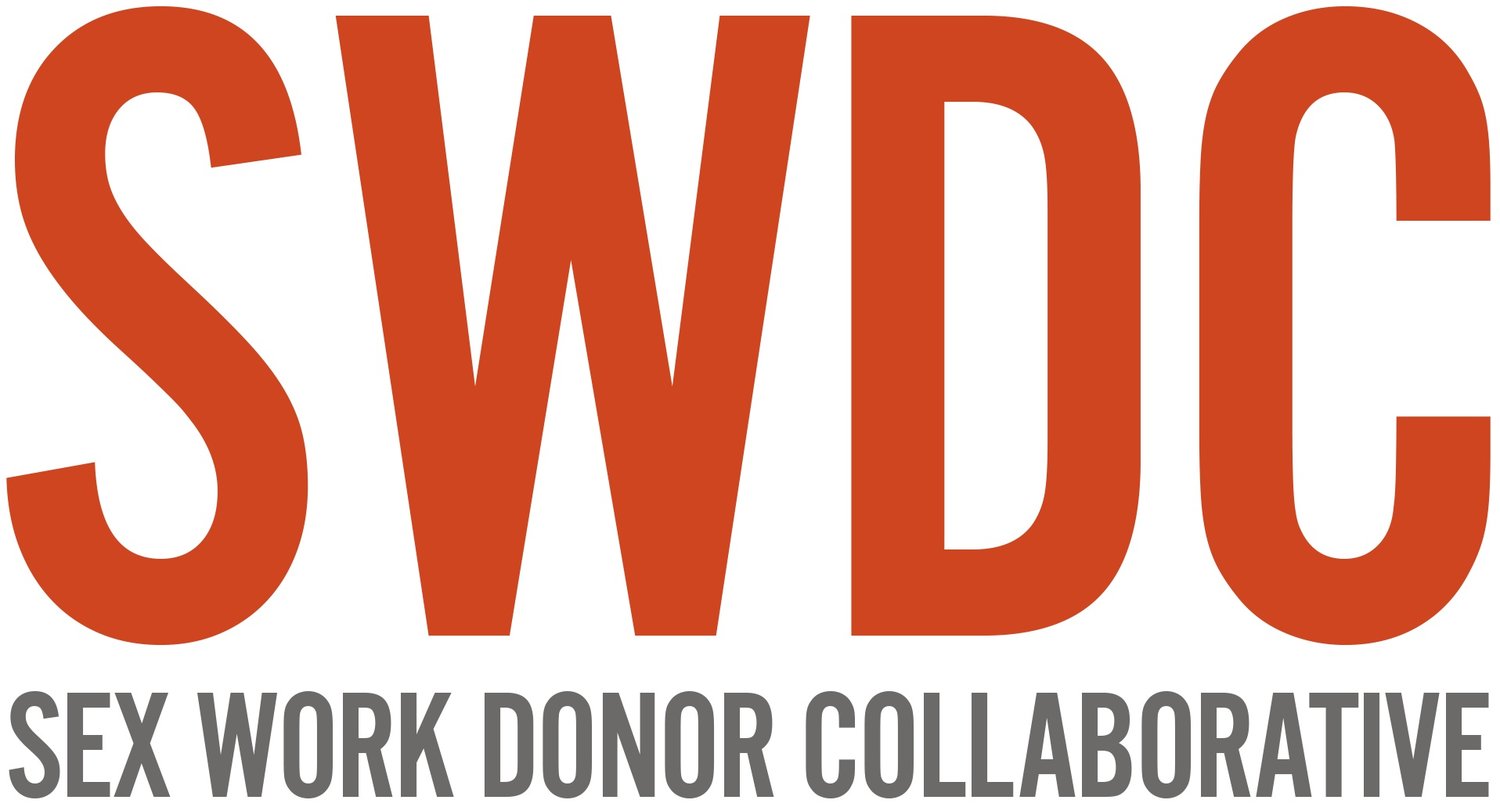The primary mission of the Sex Work Donor Collaborative is to increase the amount and quality of funding and non-financial support for sex worker rights and sex worker organizing.
Vision
We envision a world in which the sex workers’ rights movement are fully resourced, in which sex workers have a strong voice in the decisions that impact their lives (funding, local/national/international policy, etc), and in which sex workers’ rights and other movements are in solidarity to create a more just world.
Mission
The primary mission of the Sex Work Donor Collaborative is to increase the amount and quality of funding and non-financial support for sex worker rights and sex worker organizing.
Goals
Mobilize more (amount) and better (quality) funding for sex worker rights and sex worker organizing through donor education and influencing. Better funding enables sex workers to strengthen their organizations and networks, is responsive to sex worker communities’ priorities, is flexible, sustained, long-term, rights-affirming, and is accessible to sex workers.
Increase the effectiveness and efficiency of funding for sex worker rights and sex worker organizing through peer sharing, research and strategic coordination of grant-making, where appropriate.
Provide a platform where sex workers and donors can share information and learning and where sex workers can engage donors as allies in their political advocacy efforts.
Values
We recognize the self-determination of sex workers.
We recognize the importance of the inclusion of sex workers in the design, implementation and evaluation of programs and other initiatives, including the Sex Work Donor Collaborative, that affect their lives and work.
We oppose the criminalization of, and all other forms of stigma and discrimination against, sex work¹ and sex workers.
We recognize that sex work is work and that sex workers are entitled to the same rights as other workers, including the right to self-organize.
We recognize the diversity of sex workers and strive towards solutions that include and benefit sex workers oppressed because of their race, ethnicity, gender, gender identity, sexuality, national origin, age, nationality, migration status, dis/ability, and other identities.
We oppose all forms of exploitation of and violence against sex workers and recognize the distinction between sex work and human trafficking.²
Engaging with Sex Workers
In its engagement with the sex workers' movement, the SWDC will:
Chalkboard outside Sex Worker Networking Space at AWID 2024, with schedule of events “Sex Workers Space. Today, 2pm Anti-rights Impacts & Resistance, Tuesday 4pm Donor/Activist Convo, Wednesday 2pm New Laws for a New Era, Thursday 11:30 am Activist Support & Care.
Provide opportunities for sex worker-led groups and networks to give feedback on the SWDC communications that seek to influence external donor activity. (eg. research done by the SWDC, public position statements made by the SWDC, etc).
Recognise and equitably compensate sex worker activists, sex worker rights defenders, sex worker-led groups and networks for activities they may engage in with the SWDC - if financially possible.
Aim to include sex worker leaders and human rights defenders from sex worker-led groups and networks in all of its public communication activities, as speakers, participants, and/or advisors, (presentations, webinars, conferences).
Provide contact information of SWDC's organisational members to sex worker-led groups and networks when possible.
Publish relevant funding opportunities from SWDC members and others on the SWDC website, as a resource for the sex workers’ movement when possible.

